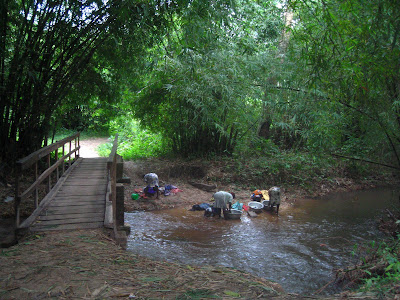Brief History on Buduburam
Buduburam was established in 1990 to accommodate the sudden increase of Liberian refugees who fled to Ghana when Charles Taylor came to power. The United Nations High Commissioner for Refugees (UNHCR) was initially very supportive and provided the settlement’s residents with individual aid and relief.
In 1997, however, after Liberia held elections, the UN decreed that Liberia was safe and stable. As a result, the UNHCR discontinued refugee assistance to Liberians in Ghana, and the settlement lost much of its funding. Thousands of refugees returned to Liberia, but the majority chose to remain in Ghana.
Soon after the 1997 elections, the political situation in Liberia worsened, and the second Liberian civil war erupted. Although the UNHCR limits its personal aid efforts in the settlement to unaccompanied minors, the elderly, and the disabled, the organization does sponsor infrastructure work within the community, funding projects such as construction and education. As the UNHCR is increasing its pressure for repatriation, its aid is being withdrawn.
Now Buduburam is host to about 40,000 refugees, most of whom are Liberian, the settlement still receives new refugees on a regular basis.
While I visited last week, a group of women had started a protest, to try and bring down Sambolla, the leader of the refugee camp. When we spoke to the women, they were filled with so much tenacity and expressed all of their frustrations about the camp with us. They wanted someone who represented them, and someone who did not care about Ghanaian special interests. They wanted to be informed. They wanted somewhere to live where they didn't have to pay for their basic needs such as toilet use, water, etc. They wanted to have job opportunities. They didn't want to go back to Liberia, it is not safe for them, it is not home.
The UNHCR is actively promoting voluntary repatriation. I was a bit frustrated with the literature that was urging them to return home. It seemed it would either not be simple enough for many of the refugees to understand or it seemed like blatant propaganda (view comic photo below).
"There is no place like home..."
What would you suggest for all these thousands of displaced people with such limited resources and opportunities?
We visited a woman who has been given a microcredit loan from WISE and she has started a small business where she sells water and some small food products. It would be better if she were able to sell a heartier food, than just snacks and hard candies, but she has a medical condition that prevents her from cooking, as the heat is not good for her health. This makes it increasingly difficult for her to bring in enough money to meet all her basic needs and pay back her loan with the interest.
While we were sitting with her, a young boy, Chris (above) was petrified to see Emily and I initially. With time he warmed up to us. : )































